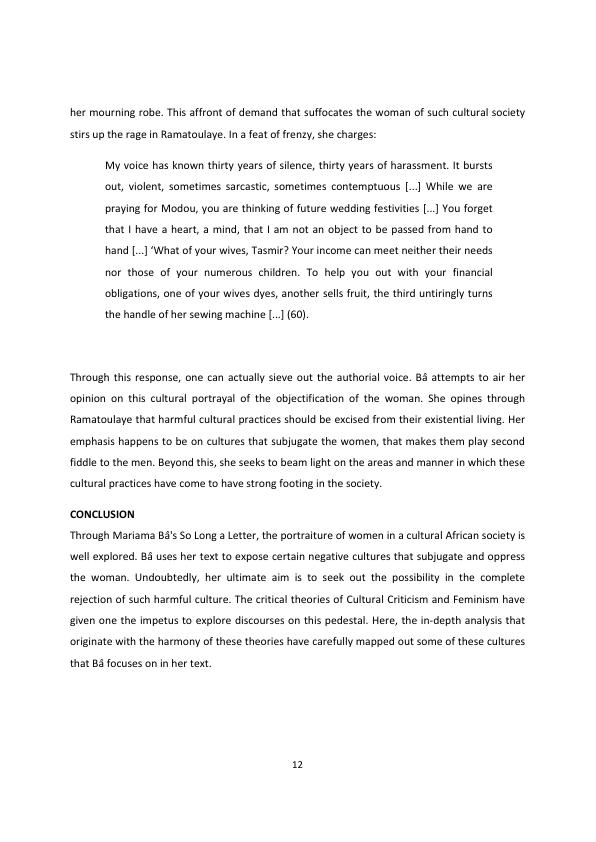


The study revealed that the participants were actively engaged in gender politics, used English in significantly different styles, but tended to be equally divided on their total allegiance to their gender groups. The data was analysed with framework analysis, simple percentages, and significant ratios.

The researchers collected data from three groups each of which consisted of ten final year students who formed panels to discuss gender issues while the researchers moderated.

The theoretical basis of the study is Radical Feminism and the researchers used a Focus Group Discussion (FGD) to collect data for the study. This study investigated feminist consciousness and the differences in the use of English language among undergraduates in the Department of English Studies (EST), University of Port Harcourt, Port Harcourt, Nigeria. The authors therefore concluded that this stance is peculiar to the author and decidedly borders on anti-feminism. But obviously, Ba’s treatment of feminism in the text attempted to set up a standard for literature which is free from biased portraiture of individuals based on gender: a stance that this chapter chose to view as more humanist than feminist. The analysis revealed certain areas of female subjugation in the African society portrayed in the story. It adopted an eclectic framework that leans on the theory of deconstruction, and reviewed characterization and themes through textual analysis. The chapter focused on So long a letter (SLL) and attempted to establish the uniqueness of Ba’s feminist stance in it even when compared with other feminist texts either by the author or her contemporaries. The objective of this chapter is to analyze the text and determine the novelist's specific brand of feminism, especially against the backdrop of Ba’s usual classification in the general category of Moderationist feminists. The feminist agitation for relevance in society and in literary delineation of gender roles is firmly established in literary criticism.


 0 kommentar(er)
0 kommentar(er)
